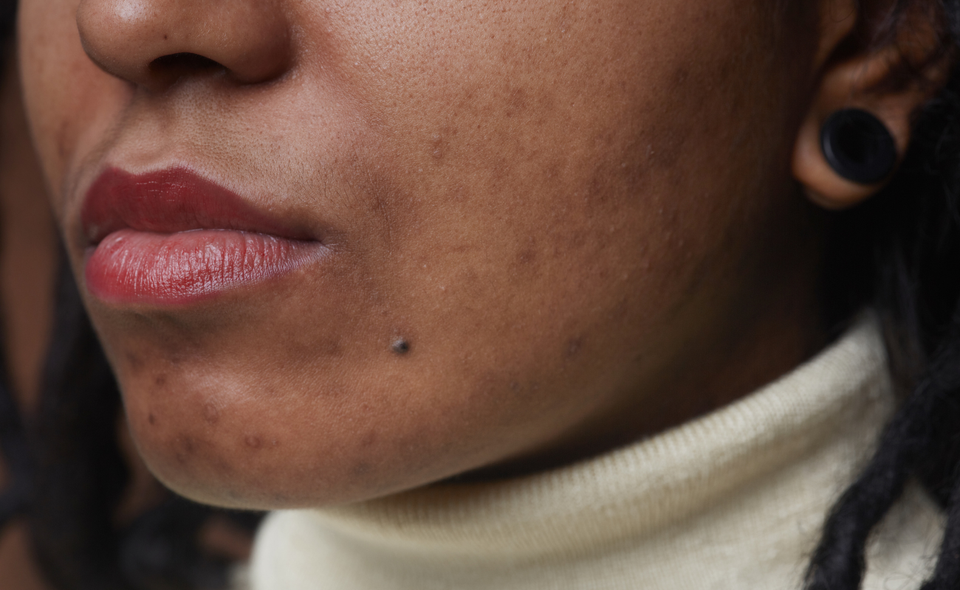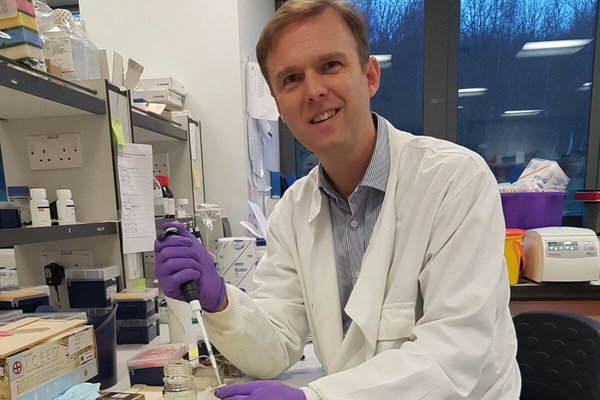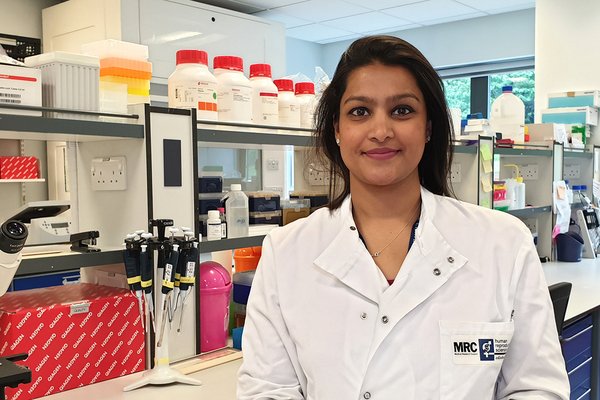
Can menstrual fluid identify causes of heavy periods?
PCOS is a common condition that affects the ovaries. Symptoms include irregular periods, fertility problems, acne, unwanted hair growth and scalp hair loss. Treatments can help manage symptoms.

Ovaries are called “polycystic” when they have more egg-containing sacs called follicles.
These can be seen on ultrasound scan. In PCOS, these follicles release an egg (ovulate) less frequently, and produce more testosterone. These are the two main features of PCOS that cause the symptoms.
PCOS affects about 1 in 10 people in the UK.
Irregular or absent ovulation leads to:
Increased testosterone production leads to:
Easy weight gain
PCOS makes weight gain easier, in part due to increased insulin secretion. Being overweight also increases insulin. High insulin makes the body store more dietary calories as fat, contributing to weight gain.
Insulin makes ovaries:
Can PCOS affect my mental health?
Anxiety and depressive symptoms are common, although doctors do not know if this is caused by hormonal imbalances, distressing symptoms, or something else.
These usually develop in the teens or early twenties. Sometimes you might notice symptoms after stopping combined hormonal contraception (“the pill”, patch or ring), as this is good at controlling PCOS. Weight gain makes symptoms more obvious.
It is probably genetic and often runs in families, although symptoms may vary.
Talk to your GP if you have symptoms. Read our information on how to prepare for your doctor's appointment.
Discuss your symptoms, fertility plans/contraception, weight changes or difficulties maintaining a healthy weight, and any mental health concerns.
Your doctor may:
There are a variety of treatments for symptoms, although there is no “cure”.
If over-weight, losing some will improve all your PCOS symptoms and make treatments more effective. Even a small reduction in weight (5-10%) make noticeable improvements, especially to period irregularities.
Lifestyle changes:
Meals
Activity
If you are very over-weight, ask your GP about specialist help.
Hormonal
Combined oral contraceptive pills are effective. These reduce testosterone production and activity. Alternatively, there are tablets to block the action of testosterone. Some contraceptive pills contain a testosterone-blocker.
Hormone treatment does not replace hair removal, but reduces the time spent it. It usually takes 6-9 months to make a noticeable difference to unwanted hair growth or to reduce scalp hair loss. Acne can improve quicker.
If you are trying to have a baby, you cannot take these treatments.
Non-hormonal
Unwanted hair:
Avoid shaving the face/neck, as it it can make the skin rough.
Acne:
Scalp hair loss:
Combined oral contraceptive pills are good for controlling abnormal bleeding patterns. Or your doctor may recommend progestogen treatment (tablets, injections, implant or hormone-releasing coil). This does not treat testosterone-driven symptoms.
These treatments are not suitable if you are trying to have a baby.
Together with lifestyle changes to lose weight, Metformin may improve symptoms plus reduce diabetes risk. Metformin, although not licenced for treating PCOS, can be prescribed if your doctor thinks it may help.
You can take Metformin if you are trying to have a baby.
If you have regular periods, you are likely to have the same chance as anyone else.
If you have infrequent or no periods, you may be offered a course of fertility treatment called ovulation induction (tablets or injections). It does not work very well if you are overweight.
Laparoscopic ovarian drilling, an operation under general anaesthetic, may increase frequency of ovulation (for selected cases only).
Your specialist may recommend IVF, especially if you are not pregnant after ovulation induction. NHS funding for IVF varies by area: your GP will advise whether you are eligible. Funding is not available if your weight is too high.
You may have increased risks of:
When periods occur less than four time/year, there is an increased chance of a rare cancer affecting the womb lining (endometrial cancer): hormone treatments reduce this risk.
The NHS website
The Royal College of Obstetricians and Gynaecologists
Verity PCOS
AskPCOS
Watch our webinar on PCOS
As a women’s health charity, part of what we do is fund research to save and change the lives of women, girls and babies.






You might be nervous about getting your first period, or you might have had periods for a while but are finding them difficult. You’re not alone.

Don’t worry, we’ve got the lowdown on how to feel supported while sorting fact from fiction.

Your menstrual cycle is the time from the first day of one period to the day before your next period.